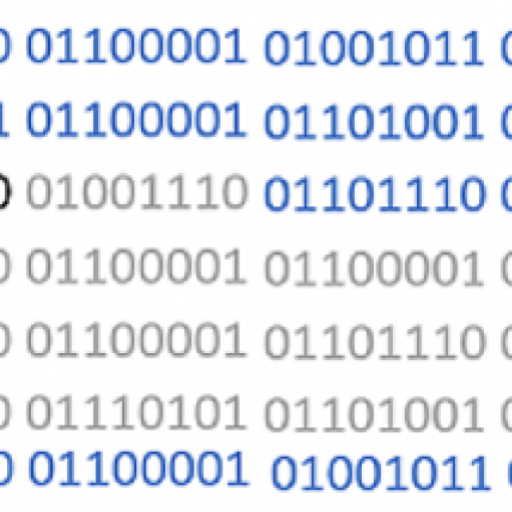We are a boutique company with expertise in AI/Data, Māori Data Sovereignty implementation and Emerging Technologies (Digital and Genetic) Ethics, Māori Intelectual Property Rights and academic research with a niche research interest in critical Indigenous research using kaupapa Māori methodologies. Led by Dr Karaitiana Taiuru, our uniqueness is we are industry based first, academics next, so we can operate over all industries and contract in other specialists on a need to basis ensuring that we can appropriately cater to all work.
Current and recent projects include multiple projects across several universities including: University of Auckland including “A collaboration to develop an Aotearoa Health AI Evaluation Framework” working with multiple other universities, Te Whatu Ora and leading AI experts, the creation of a detailed Māori Data Sovereignty Implementation guide for health researchers; The Australian National University “AI as Infrastructure: Large Language Models for Transnational Historical Research” exploring whether Large Language Models (LLMs) could enable a new era of transnational historical research, by facilitating analysis of historical source documents across countries, without the need for costly infrastructure investment; University of Canterbury Marsden Fund “Training natural language models to understand genomics and study gout in Māori and Pacific populations”, “AI-driven Two Way, Feedback Controlled Emotional Recognition Training for Individuals with Autism Spectrum Disorder.” the aim to develop an AI system that identifies facial recognition as non verbal correspondence; University of Canterbury and Health Research Council “Development and validation of Human Digital Twins for reversing Type II Diabetes” providing tikanga Māori expertise with Data and AI; Cawthron Institute “Climate Adapted Finfish” AI/Data with tikanga Māori and science advisory role; LandCare Research “Harnessing generative artificial intelligence to inform nature-based adaptation to climate change”; Spark “Māori AI and Data guidelines”; Victoria University of Wellington “Saving Screen Time: People with ADHD and Disconnecting from the Internet” using tikanga Māori Data Sovereignty to understand cultural differences and for Department of Internal Affairs “AI Assurance Model for the Public Sector“; Standards New Zealand “Trans-Tasman Standards Alignment Programme” reviewing ISO AI standards as a Māori expert.
Why is it important to include Māori governance in the development of AI?
Combining western ethics and Māori traditional knowledge allows Dr Taiuru to write about and practice Māori AI and Data Ethics which are unique to and benefit Māori.
We have seen multiple systems in Education, Health, Corrections, Global warming, Justice etc., all fail Māori as they were designed, implemented and managed by non-Māori to cater to and for Māori.
We have already seen the intergenerational impacts of western views being used to create solutions for Māori including the Native Schools Act, Tohunga Suppression Act, Hunn Report and many other failed initiatives government lead initiatives.
So now terms such as co design are common terms in New Zealand as we have seen intergenerational impacts to Māori due to not co designing. AI and other emerging technologies will be the same without Māori ethics and engagement.
Internationally we have already seen many examples in America where new technologies that are largely created by middle class, white men from middle class backgrounds ignores minorities and in fact is bias and discriminates as the technologies were built and designed in the reflection of their creators (white men) and not reflective of society. For example, facial recognition technologies that could not see People of Colour or interpreted them as a non-human species, false facial matches by Police with People of Colour leading to innocent people being shot, killed and arrested.
Historically, the first major technological discrimination was the introduction of the Internet and the digital divide. The heavy reliance on it for Education, despite Māori statistically not having access to the Internet. Then the Harmful Digital Communications Act, that was to provide safety for people online had little or no Māori consultation or ethical considerations resulting in Māori being overrepresented as online victims. One more example, the government created an Algorithm charter to protect New Zealanders with algorithms, again with little or no Māori ethical consideration. The result was a Charter that could be used to discriminate against Māori by simply claiming ignorance.
It is also widely acknowledged that technologies such as AI will create a new ‘industrial revolution’. Some say it has already started. As New Zealanders and companies that operate in New Zealand, we all have a commitment to the principles of Te Tiriti o Waitangi which include:
- “Māori self-determination and mana motuhake in the design, delivery, and monitoring of new systems that will impact on Māori society and individuals.
- Equity which requires the Crown to commit to achieving equitable outcomes for Māori
- Active protection, which requires the Crown to act, to the fullest extent practicable, to achieve equitable outcomes for Māori.
- Options which require the Crown to ensure services adn products are provided in a culturally appropriate
- Partnership, which requires the Crown and Māori to work in partnership in the governance, design, delivery, and monitoring of new technologies.
 About Dr Dr Karaitiana Taiuru JP, MInstD.
About Dr Dr Karaitiana Taiuru JP, MInstD.
Primary Iwi affiliations: Ngāi Tahu, Ngāti Kahungunu, Ngāti Toa.
A distinguished career at the helm of Taiuru & Associates Ltd and as a professional governor with a myriad of sectors including as a recognised Māori Intelectual Property expert, my focus is on the integration of AI and data governance and authoritative Critical Indigenous Research with organisations. Spearheading initiatives that resonate with indigenous and Māori methodologies, my work bridges traditional knowledge and cutting-edge technology, ensuring cultural values are upheld in digital landscapes while implementing recognised international best practices.
As Chair of Kāhui Māori at AI Forum NZ, I advocate for responsible AI practices, contributing to a framework that respects Māori rights in the digital era. My commitment to this cause is further exemplified through my role as a Board Member at Te Ao Matihiko, where we nurture a community-centric approach to empower Māori in digital and tech roles, shaping an inclusive future.
Dr Karaitiana Taiuru is a nationally and internationally recognised expert with Māori Data Sovereignty.
Unlike others in the Māori Data Sovereignty field who are either solely: tech, Iwi, biological focused, or academic philosophers, all with organisational constraints, Dr Taiuru is an independent multi-disciplinary Māori Data Sovereignty expert with knowledge backgrounds in Tech, Data, Te Tiriti, Māori Intellectual Property Rights, academia and is an active member in several Iwi, hapū and many Māori organisations around the country.
A recent survey by the International Data Corporation (IDC) indicates that data sovereignty and compliance are now key factors influencing IT decisions. In the Cloud Pulse 2Q22 survey, nearly half of the respondents (48%) highlighted the importance of data sovereignty and industry compliance in discussions about future IT architectures. Only a small fraction (4%) believed that their IT organizations would remain unaffected by these considerations.
A trusted expert with Waitangi Tribunal claimants including as an expert witness with WAI 2252 which recognised Māori Data and Māori Data Sovereignty and with both digital and Plant Varieties, tikanga and Mātauranga life experiences (complimenting the Supreme Court judgement that Tikanga is New Zealand’s first common law), and a recognised expertise with Māori Intellectual Property Rights, learnt mātauranga Māori from the mare and in Māori communities, skills that are not able to be taught in the education system and a belief system that is at odds with academia.
Dr Taiuru has worked in the tech industry for more than 30 years with Data, Internet, and emerging technologies with a commercial and Te Tiriti focus. He has extensively written about Māori Data Sovereignty as an academic and as a community leader documenting his extensive engagements and consultations with Māori communities including te ao Māori views-based Māori Data Sovereignty principles, Māori Data is a Taonga and critiqued many of the academic publications who theorise as opposes to engage with Māori and who do not have a te Ao Māori upbringings.
His PhD thesis was titled ‘Tikanga Sovereignty with Genetic Research” which extended the tech Māori Data Sovereignty into a traditional Māori world view of tikanga.
